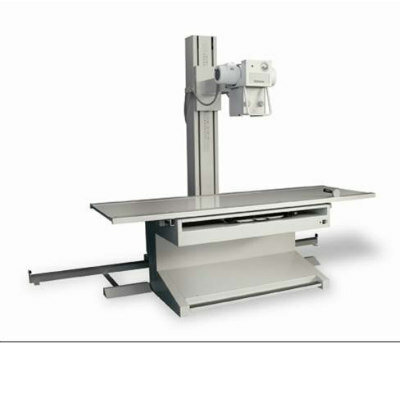Hologic Showcased Latest Advances at Virtual ECR Congress 2020
|
By MedImaging International staff writers Posted on 20 Aug 2020 |

Illustration
Hologic, Inc. (Marlborough, MA, USA) showcased its latest advances and shared its new innovations on its virtual booth at the online ECR 2020 event held on July 15-21.
ECR 2020 was the first ever online congress to be held by the European Society of Radiology (ESR) due to the COVID-19 pandemic and attracted a record 15,265 professional delegates from over 130 countries. The Virtual Exhibition was attended by 216 companies which demonstrated their products, hosted webinars and invited attendees to visit their very own digital booths. Hologic also used its virtual booth at ECR 2020 to demonstrate how the company’s clinically proven, integrated solutions incorporating artificial intelligence (AI) can support management of patients across the breast health continuum of care.
At ECR 2020, Hologic demonstrated its Unifi Workspace solution which integrates reading of MRI, ultrasound and mammography into one dedicated platform, and is designed to allow for more efficient review of breast images. The company also showcased its 3DQuorum Imaging Technology, Powered by Genius AI, which significantly reduces mammography exam reading times without compromising image quality, sensitivity or accuracy.
Also on display at Hologic’s virtual booth at ECR 2020 was the company’s Faxitron Path+ Specimen Radiography System which enables pathologists to image a wide range of specimens of varying sizes and have immediate access to high-definition X-ray images, directly in the pathology lab. Hologic also demonstrated its Faxitron Trident HD Specimen Radiography System which delivers enhanced image quality, improved workflow and instant sample verification during breast-conserving surgeries and stereotactic breast biopsies.
Among other innovations showcased at ECR 2020 by Hologic was the LOCalizer Wireless Radio Frequency Identification (RFID) Breast Lesion Localization System, a non-radioactive, radiofrequency localization system designed for precise marking and targeting of lesions in breast-conserving surgery. Attendees to Hologic’s virtual booth at ECR 2020 also got a glimpse of the company’s new Aixplorer Mach 30 Breast Ultrasound System which provides fast, high quality imaging and is the first to offer an intuitive touchpad control and large adjustable touchscreen display.
Related Links:
Hologic, Inc.
ECR 2020 was the first ever online congress to be held by the European Society of Radiology (ESR) due to the COVID-19 pandemic and attracted a record 15,265 professional delegates from over 130 countries. The Virtual Exhibition was attended by 216 companies which demonstrated their products, hosted webinars and invited attendees to visit their very own digital booths. Hologic also used its virtual booth at ECR 2020 to demonstrate how the company’s clinically proven, integrated solutions incorporating artificial intelligence (AI) can support management of patients across the breast health continuum of care.
At ECR 2020, Hologic demonstrated its Unifi Workspace solution which integrates reading of MRI, ultrasound and mammography into one dedicated platform, and is designed to allow for more efficient review of breast images. The company also showcased its 3DQuorum Imaging Technology, Powered by Genius AI, which significantly reduces mammography exam reading times without compromising image quality, sensitivity or accuracy.
Also on display at Hologic’s virtual booth at ECR 2020 was the company’s Faxitron Path+ Specimen Radiography System which enables pathologists to image a wide range of specimens of varying sizes and have immediate access to high-definition X-ray images, directly in the pathology lab. Hologic also demonstrated its Faxitron Trident HD Specimen Radiography System which delivers enhanced image quality, improved workflow and instant sample verification during breast-conserving surgeries and stereotactic breast biopsies.
Among other innovations showcased at ECR 2020 by Hologic was the LOCalizer Wireless Radio Frequency Identification (RFID) Breast Lesion Localization System, a non-radioactive, radiofrequency localization system designed for precise marking and targeting of lesions in breast-conserving surgery. Attendees to Hologic’s virtual booth at ECR 2020 also got a glimpse of the company’s new Aixplorer Mach 30 Breast Ultrasound System which provides fast, high quality imaging and is the first to offer an intuitive touchpad control and large adjustable touchscreen display.
Related Links:
Hologic, Inc.
Latest Industry News News
- Bayer and Google Partner on New AI Product for Radiologists
- Samsung and Bracco Enter Into New Diagnostic Ultrasound Technology Agreement
- IBA Acquires Radcal to Expand Medical Imaging Quality Assurance Offering
- International Societies Suggest Key Considerations for AI Radiology Tools
- Samsung's X-Ray Devices to Be Powered by Lunit AI Solutions for Advanced Chest Screening
- Canon Medical and Olympus Collaborate on Endoscopic Ultrasound Systems
- GE HealthCare Acquires AI Imaging Analysis Company MIM Software
- First Ever International Criteria Lays Foundation for Improved Diagnostic Imaging of Brain Tumors
- RSNA Unveils 10 Most Cited Radiology Studies of 2023
- RSNA 2023 Technical Exhibits to Offer Innovations in AI, 3D Printing and More
- AI Medical Imaging Products to Increase Five-Fold by 2035, Finds Study
- RSNA 2023 Technical Exhibits to Highlight Latest Medical Imaging Innovations
- AI-Powered Technologies to Aid Interpretation of X-Ray and MRI Images for Improved Disease Diagnosis
- Hologic and Bayer Partner to Improve Mammography Imaging
- Global Fixed and Mobile C-Arms Market Driven by Increasing Surgical Procedures
- Global Contrast Enhanced Ultrasound Market Driven by Demand for Early Detection of Chronic Diseases
Channels
Radiography
view channel
Novel Breast Imaging System Proves As Effective As Mammography
Breast cancer remains the most frequently diagnosed cancer among women. It is projected that one in eight women will be diagnosed with breast cancer during her lifetime, and one in 42 women who turn 50... Read more
AI Assistance Improves Breast-Cancer Screening by Reducing False Positives
Radiologists typically detect one case of cancer for every 200 mammograms reviewed. However, these evaluations often result in false positives, leading to unnecessary patient recalls for additional testing,... Read moreMRI
view channel
PET/MRI Improves Diagnostic Accuracy for Prostate Cancer Patients
The Prostate Imaging Reporting and Data System (PI-RADS) is a five-point scale to assess potential prostate cancer in MR images. PI-RADS category 3 which offers an unclear suggestion of clinically significant... Read more
Next Generation MR-Guided Focused Ultrasound Ushers In Future of Incisionless Neurosurgery
Essential tremor, often called familial, idiopathic, or benign tremor, leads to uncontrollable shaking that significantly affects a person’s life. When traditional medications do not alleviate symptoms,... Read more
Two-Part MRI Scan Detects Prostate Cancer More Quickly without Compromising Diagnostic Quality
Prostate cancer ranks as the most prevalent cancer among men. Over the last decade, the introduction of MRI scans has significantly transformed the diagnosis process, marking the most substantial advancement... Read moreUltrasound
view channel
Deep Learning Advances Super-Resolution Ultrasound Imaging
Ultrasound localization microscopy (ULM) is an advanced imaging technique that offers high-resolution visualization of microvascular structures. It employs microbubbles, FDA-approved contrast agents, injected... Read more
Novel Ultrasound-Launched Targeted Nanoparticle Eliminates Biofilm and Bacterial Infection
Biofilms, formed by bacteria aggregating into dense communities for protection against harsh environmental conditions, are a significant contributor to various infectious diseases. Biofilms frequently... Read moreNuclear Medicine
view channel
New SPECT/CT Technique Could Change Imaging Practices and Increase Patient Access
The development of lead-212 (212Pb)-PSMA–based targeted alpha therapy (TAT) is garnering significant interest in treating patients with metastatic castration-resistant prostate cancer. The imaging of 212Pb,... Read moreNew Radiotheranostic System Detects and Treats Ovarian Cancer Noninvasively
Ovarian cancer is the most lethal gynecological cancer, with less than a 30% five-year survival rate for those diagnosed in late stages. Despite surgery and platinum-based chemotherapy being the standard... Read more
AI System Automatically and Reliably Detects Cardiac Amyloidosis Using Scintigraphy Imaging
Cardiac amyloidosis, a condition characterized by the buildup of abnormal protein deposits (amyloids) in the heart muscle, severely affects heart function and can lead to heart failure or death without... Read moreGeneral/Advanced Imaging
view channel
New AI Method Captures Uncertainty in Medical Images
In the field of biomedicine, segmentation is the process of annotating pixels from an important structure in medical images, such as organs or cells. Artificial Intelligence (AI) models are utilized to... Read more.jpg)
CT Coronary Angiography Reduces Need for Invasive Tests to Diagnose Coronary Artery Disease
Coronary artery disease (CAD), one of the leading causes of death worldwide, involves the narrowing of coronary arteries due to atherosclerosis, resulting in insufficient blood flow to the heart muscle.... Read more
Novel Blood Test Could Reduce Need for PET Imaging of Patients with Alzheimer’s
Alzheimer's disease (AD), a condition marked by cognitive decline and the presence of beta-amyloid (Aβ) plaques and neurofibrillary tangles in the brain, poses diagnostic challenges. Amyloid positron emission... Read more.jpg)
CT-Based Deep Learning Algorithm Accurately Differentiates Benign From Malignant Vertebral Fractures
The rise in the aging population is expected to result in a corresponding increase in the prevalence of vertebral fractures which can cause back pain or neurologic compromise, leading to impaired function... Read moreImaging IT
view channel
New Google Cloud Medical Imaging Suite Makes Imaging Healthcare Data More Accessible
Medical imaging is a critical tool used to diagnose patients, and there are billions of medical images scanned globally each year. Imaging data accounts for about 90% of all healthcare data1 and, until... Read more
Global AI in Medical Diagnostics Market to Be Driven by Demand for Image Recognition in Radiology
The global artificial intelligence (AI) in medical diagnostics market is expanding with early disease detection being one of its key applications and image recognition becoming a compelling consumer proposition... Read moreIndustry News
view channel
Bayer and Google Partner on New AI Product for Radiologists
Medical imaging data comprises around 90% of all healthcare data, and it is a highly complex and rich clinical data modality and serves as a vital tool for diagnosing patients. Each year, billions of medical... Read more





















